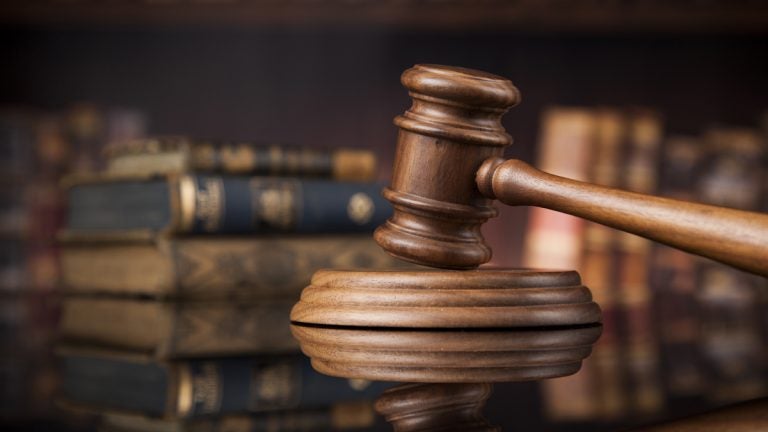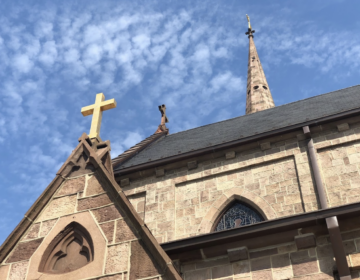N.J. high court bars longtime behavioral theory from child sexual abuse cases
Some psychologists say the ruling could hurt kids who allege sexual abuse.
Listen 5:18
(JanPietruszka/Bigstock)
The New Jersey Supreme Court ruled Tuesday that attorneys may no longer call expert witnesses to testify on a longstanding theory that purports to describe how some children act after sexual abuse.
The court found little scientific evidence to back up the Child Sexual Abuse Accommodation Syndrome theory, or CSAAS, a psychological concept that originated in the 1980s.
“Pseudo-science, junk science, unreliable science has no place in the courtroom,” said Joe Russo with the Office of the Public Defender, which brought the appeal.
At least 40 U.S. states and Washington, D.C., permit CSAAS testimony in court.
And some clinical psychologists said the ruling could hurt children who make allegations of sexual abuse, since prosecutors may now have a hard time explaining to a jury the odd behavior of some young victims.
CSAAS was first proposed by Dr. Roland Summit in 1983. Summit suggested that children who are victims of sexual abuse may act in ways that seem strange to adults.
Summit said those behaviors included “secrecy; helplessness; entrapment and accommodation; delayed, conflicted, and unconvincing disclosure; and retraction,” according to the Supreme Court ruling.
Although Summit’s theory was well received at the time, when research on child sexual abuse was scant, recent critics have said CSAAS is so broad in scope that it could be applied to almost any situation involving abuse allegations — even when abuse has not occurred. They also point to the inescapable circular logic of the theory.
“If you take this belief in CSAAS, your belief is that when a child says they were not abused, that may be a symptom of abuse,” said Dr. Kamala London, a psychologist at the University of Toledo.
“What does someone who wasn’t abused do, if denying abuse is symptomatic of abuse?”
In the case before the state Supreme Court, State v. J.L.G., the Hudson County prosecutor’s office charged a 32-year-old man with aggravated sexual assault of his teenage stepdaughter over an 18-month period.
The teenager initially denied that the abuse had occurred, apparently in an attempt to pacify her mother who had threatened to kill the defendant “if he’s doing something.” The stepdaughter later told authorities that the abuse had in fact occurred. (She had also used her iPhone to record one instance of sexual abuse, and the recording was played in court.)
After the jury found the man guilty, the public defender’s office filed an appeal, claiming in part that CSAAS had no basis in science and should not be the subject of expert witness testimony in court.
The appellate division upheld the decision of the trial court to allow CSAAS testimony, but then the Supreme Court sent it back down to the trial division for an evidentiary hearing on the theory itself, the first of its kind in New Jersey.
After considering expert reports, testimony, and dozens of exhibits, trial court Judge Peter F. Bariso, Jr. ruled that the state failed to prove that CSAAS was widely accepted in the scientific community.
In fact, as the high court ruling pointed out, neither the American Psychiatric Association, nor the American Psychological Association recognizes CSAAS. It also does not appear in the Diagnostic and Statistical Manual of Mental Disorders (DSM-5), the “authoritative list” of mental health disorders.
Although New Jersey courts began allowing testimony on CSAAS in 1993, Chief Justice Stuart Rabner, who wrote the court’s unanimous opinion, said the passage of time has shown that to be a mistake.
“Today, we have the benefit of more critical and thorough scientific analysis of CSAAS, which cautions against its continued use,” Rabner wrote. “Expert testimony about CSAAS therefore may no longer be presented to juries.”
The opinion did provide a carve-out for expert testimony on “delayed disclosure” — when victims wait to report the alleged abuse — which Rabner said does have sufficient scientific backing and would be allowed at trial.
The Supreme Court also upheld the conviction of the defendant, identified only by the initials J.L.G., saying that the evidence against him was so overwhelming that the CSAAS testimony in the case was “harmless.”
Still others who criticized the court’s opinion believe it will make it harder for some young accusers at trial.
Dr. Lynn Taska, a psychologist in private practice in Lawrenceville, New Jersey, also gave expert testimony on CSAAS in State v. J.L.G.
She said CSAAS testimony is a critical tool for prosecutors attempting to remind adult juries that children often act differently than mature adults and sometimes without any reason.
“It’s really important that jurors understand that when they see that kind of behavior, that doesn’t mean it’s fake,” Taska said. “I worry that kids won’t be believed if the disclosure doesn’t look like a perfect statement.”
WHYY is your source for fact-based, in-depth journalism and information. As a nonprofit organization, we rely on financial support from readers like you. Please give today.




